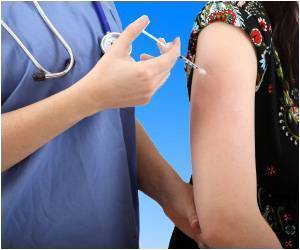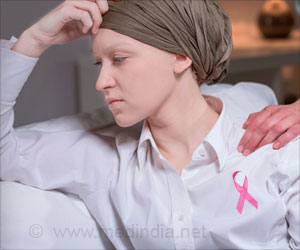An initiative at Nemours Children’s Health significantly increased early HPV vaccination rates, highlighting the benefits of starting the series at age 9 to reduce cancer risk.

Quality Initiative to Increase Early Initiation and Series Completion of HPV Vaccine and its Impact on Health Disparities
Go to source). Published in Academic Pediatrics, the study by Caitlin J. Miller, a medical student at Sidney Kimmel Medical College of Thomas Jefferson University, and Dr. Jonathan Miller, Associate Chief of Primary Care at Nemours Children’s Health in the Delaware Valley, focused on a program designed to ensure 9-year-old patients start the HPV vaccine series. This research builds on their previous presentation at the Pediatric Academic Societies Meeting in May.
‘Did You Know?
Cervical cancer – the HPV infection is responsible for an estimated 530,000 cases of cervical cancer and 264,000 cervical cancer deaths each year. #cervicalcancer #medindia #cancer #hpv’





Cervical cancer – the HPV infection is responsible for an estimated 530,000 cases of cervical cancer and 264,000 cervical cancer deaths each year. #cervicalcancer #medindia #cancer #hpv’
Advertisement
Overview of the HPV Vaccine and Its Benefits
The HPV vaccine, first approved in 2006, can prevent up to 90% of cervical cancers and large proportions of vulvar, vaginal, anal, and head and neck cancers. As of 2022, 62.6% of U.S. adolescents ages 13-17 had received both recommended doses, with 76.0% having at least one dose. However, public health experts have voiced concern that not enough adolescents complete the series, and that vaccination rates are inconsistent across racial and ethnic groups.Currently, the U.S. Centers for Disease Control and Prevention recommends that adolescents receive their first HPV vaccine at age 11. However, research has shown that initiating vaccination at age 9 is safe, effective, and increases the chances that adolescents will complete the series.
Advertisement
Study Design and Setting
In this study, electronic health records in 20 Nemours Children’s primary care sites were updated to inform health care professionals that patients should be offered the HPV vaccine at age 9. The clinicians received updated education on the vaccine and practice-level feedback on ongoing vaccination rates.Conducted from 2019 to 2022, the study’s primary measure was the Healthcare Effectiveness Data Information Set (HEDIS) rate, defined as the percentage of patients who have had two doses of the HPV vaccine by their 13th birthday. In 2019, the HPV vaccine HEDIS rate in the Nemours Primary Care network was 49.2%. In 2022, the rate had improved to 59.5%. The following year, although the study had ended, the researchers noted the rate had continued to rise to 63.9%.
Advertisement
Impact of Early HPV Vaccine Initiation
The researchers also found that early HPV vaccine initiation (starting at age 9), improved from 13.2% in 2019 to 42.2% in 2022. Early initiation improved significantly in every racial and ethnic group, with an increase from 27.6% to 51.5% for Hispanic or Latino patients; from 19.0% to 45.7% for Black patients, from 4.8% to 44.8% for Asian patients, and from 6.1% to 36.5% for white patients.Parental Acceptance of Early HPV Vaccination
The researchers said that providers felt many parents are more accepting of HPV vaccination at age 9, possibly due to reduced stigma related to sexual activity. They also suggested that the increased provider education in this quality improvement initiative helped providers strengthen their communication on cancer prevention, an effective message for many parents.“Initiating HPV vaccination at age 9 allows us to make leaps in this important public health measure,” said Dr. Jonathan Miller. “We were thrilled to discover that this project led to significant improvements in racial disparities in vaccination rates, even though we did not design the intervention specifically to do that.”
Support for Early HPV Vaccination Initiation
“Our study showed that initiating vaccination at age 9 leads to more adolescents being fully protected against cervical cancer and several other cancer types, which adds to a growing body of evidence and broader national push to begin the series at that age,” said Caitlin Miller.Reference:
- Quality Initiative to Increase Early Initiation and Series Completion of HPV Vaccine and its Impact on Health Disparities - (https://www.academicpedsjnl.net/article/S1876-2859(24)00554-0/abstract)
Source-Eurekalert















